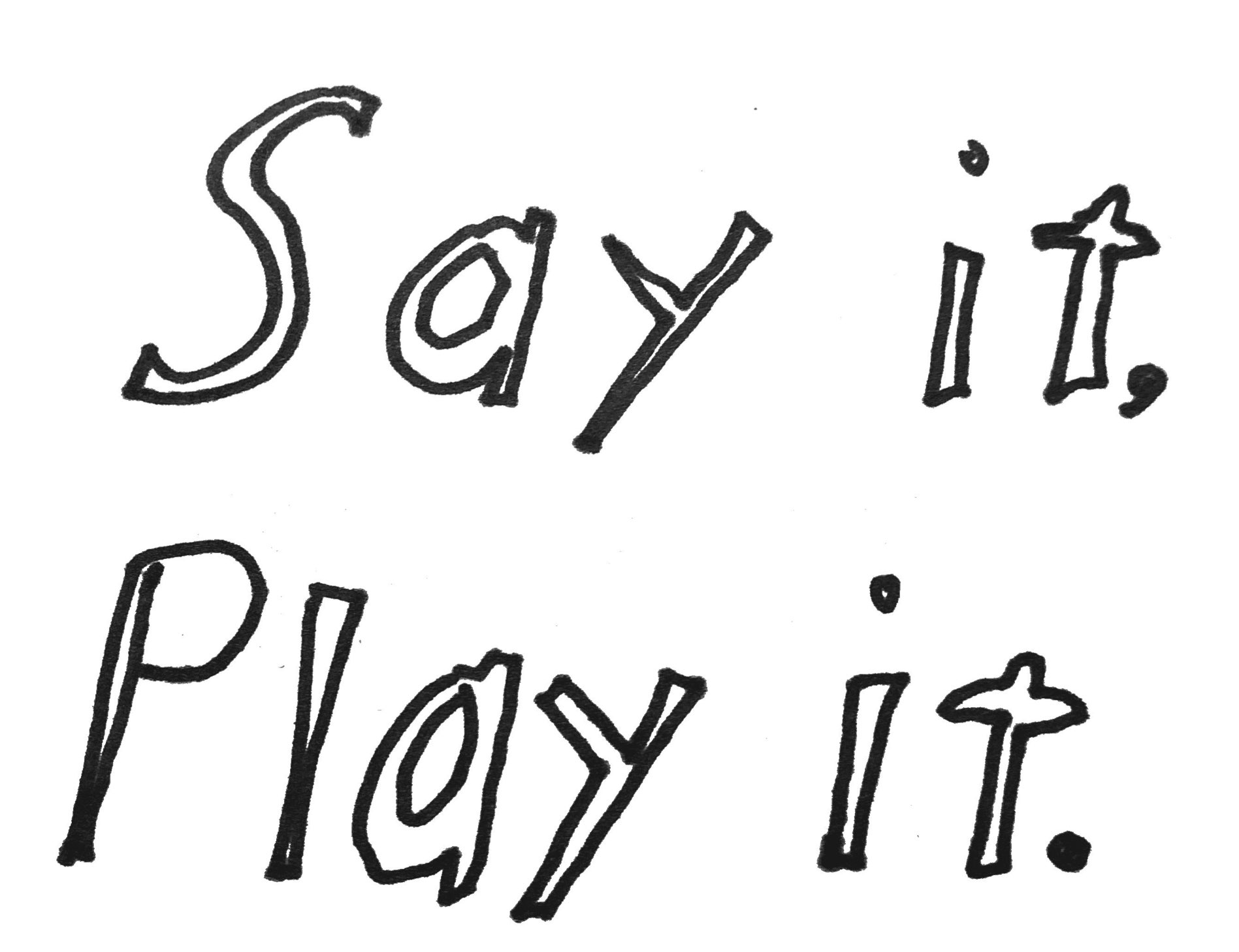A lot of students say to me, “I can’t remember songs. How can I get better at recalling what I’ve learned?”
Here is practice stack to help you:
- Mental Triggers
- Index Cards
- Sing What You Play
- Daily Listening
- Review Sets
Mental Triggers
Here’s a great strategy to help you remember songs. Take each part and distill it down to just a few notes. This little bit acts as a “mental trigger” to help you remember the song next time.

The Basic Process
- Learn and practice a song until you can play it through start to finish.
- Practice the mental trigger. Say the name of song out loud, then play the beginning (first quarter or bars 1-2).
- Spaced Repetition. Practice something else for five minutes and then do the mental trigger again. This helps seal it in your brain.

Multiple Songs
Use this process to review batches of songs with mental triggers:
- Practice a song, then do it’s mental trigger
- Practice another song, then triggers for songs 1 & 2
- Practice another song, then triggers for songs 1, 2 & 3
Learn While You Sleep
To further seal it in your brain, do a five-minute mental triggers session before bed. Play as many new song triggers as you can in that time. Or even just sing or visualize the triggers. Then your brain will magically work on learning these songs while you sleep 😴.
The Goal 🎯
Master these triggers until you can play them just by glancing at your song list—no sheet music, no recordings.
Getting Unstuck
If you get stuck, then refer to sheet music, tabs or a recording. I like to just look at or listen to the first bar. Then I turn away from the sheet music (or pause audio) and try to remember the tune.
Flashcards are a good tool for this. Have the title of a tune on one side and the trigger on the other. A lot of FiddleHed students are using cards to organize their practice of songs, skills and strategies.


Desirable Difficulty
If you struggle to remember a song, don’t immediately look it up. Allow yourself to struggle with it for a bit. Making this effort will help you learn and remember it better. This is called Desirable Difficulty. I like to think of this as finding the Perfect Challenge. In any good game, there’s a balance between winning and losing, between easy and hard which keeps you engaged.
So it’s a fun practice in the moment, but it also helps you remember things you learned in the past when you return to them in the future.

Tips
Tip #1: Singing & Audiation
In addition to playing the triggers, sing and visualize yourself playing them. This internalizes that part. You can gamify the process by playing around with call-and-response. Say the song title, play it, say it, sing it.

Tip #2: Recording
Record the triggers for everything you practiced in a day, or over the last week. Listen to them at times of the day when you’re not practicing.
Tip #3: Interleaving
Interleave or mix this practice with other practice strategies.
- Song: Swallowtail Jig
- Skill: string crossing
- Mental Trigger: Swallowtail Jig
- Song: Wagon Wheel
- Mental Triggers: Swallowtail Jig, Wagon Wheel
- Skill: double stops
- Mental Triggers: Swallowtail Jig, Wagon Wheel
- etc.
Further
Fiddling With Desirable Difficulty
Desirable difficulty – Wikipedia
Expand Your Musical Mind With Audiation
Mix Up Your Music Practice With Interleaving

Amazing, yet again .. wonderful tips on learning and remembering. The index cards look increibly helpful, so I will start that today. Really appreciate the incredible helpful tips.
Jason, just saw the TikTok singing video- so happy for you guys! My absolute best to ya’ll, and to Veda.
Would you mind telling how to pronounce ‘Veda’- is it ‘vay-da’??